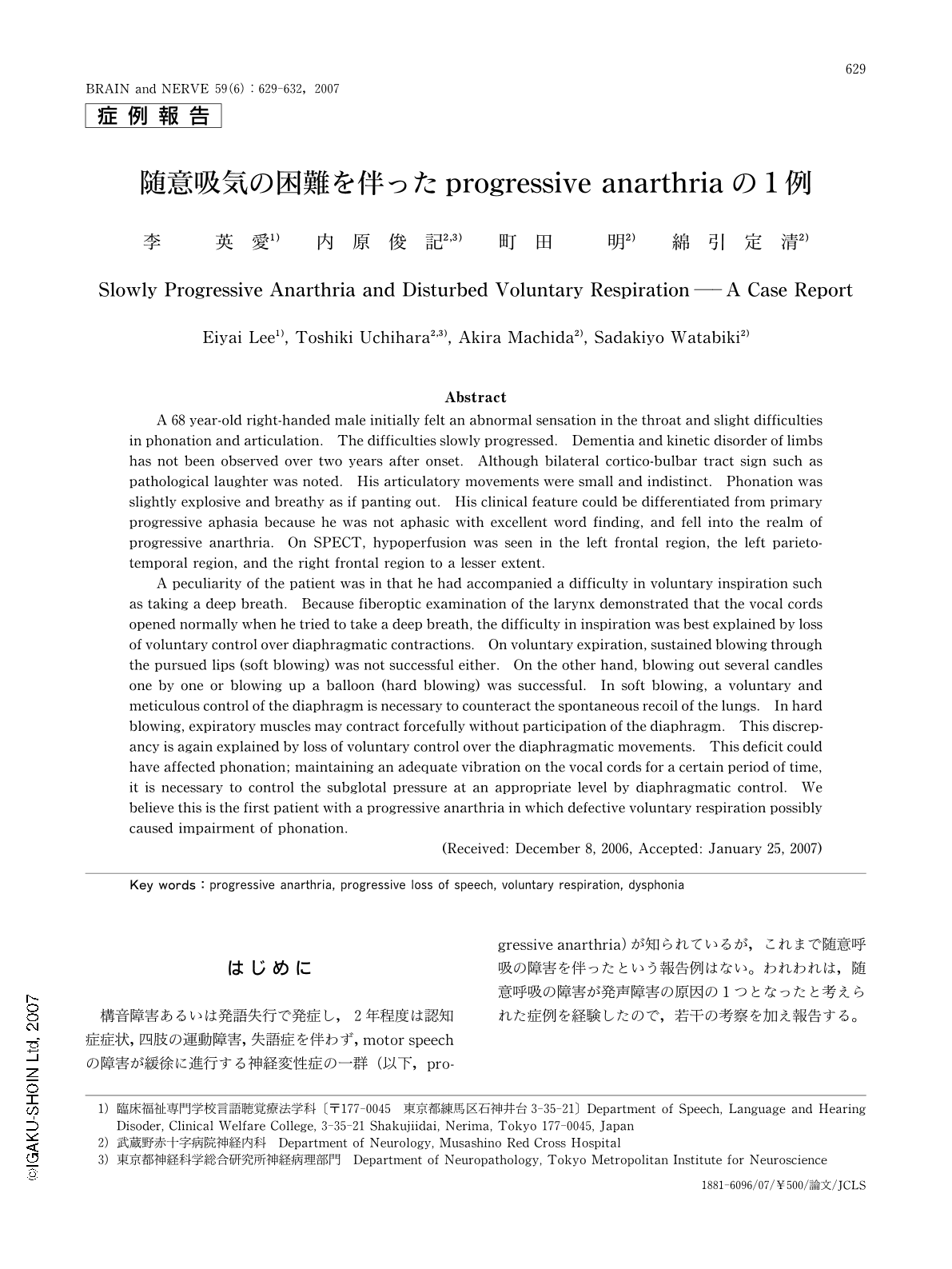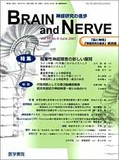Japanese
English
- 有料閲覧
- Abstract 文献概要
- 1ページ目 Look Inside
- 参考文献 Reference
はじめに
構音障害あるいは発語失行で発症し,2年程度は認知症症状,四肢の運動障害,失語症を伴わず,motor speechの障害が緩徐に進行する神経変性症の一群(以下,progressive anarthria)が知られているが,これまで随意呼吸の障害を伴ったという報告例はない。われわれは,随意呼吸の障害が発声障害の原因の1つとなったと考えられた症例を経験したので,若干の考察を加え報告する。
Abstract
A 68 year-old right-handed male initially felt an abnormal sensation in the throat and slight difficulties in phonation and articulation. The difficulties slowly progressed. Dementia and kinetic disorder of limbs has not been observed over two years after onset. Although bilateral cortico-bulbar tract sign such as pathological laughter was noted. His articulatory movements were small and indistinct. Phonation was slightly explosive and breathy as if panting out. His clinical feature could be differentiated from primary progressive aphasia because he was not aphasic with excellent word finding,and fell into the realm of progressive anarthria. On SPECT,hypoperfusion was seen in the left frontal region,the left parieto-temporal region,and the right frontal region to a lesser extent.
A peculiarity of the patient was in that he had accompanied a difficulty in voluntary inspiration such as taking a deep breath. Because fiberoptic examination of the larynx demonstrated that the vocal cords opened normally when he tried to take a deep breath,the difficulty in inspiration was best explained by loss of voluntary control over diaphragmatic contractions. On voluntary expiration,sustained blowing through the pursued lips (soft blowing) was not successful either. On the other hand,blowing out several candles one by one or blowing up a balloon (hard blowing) was successful. In soft blowing,a voluntary and meticulous control of the diaphragm is necessary to counteract the spontaneous recoil of the lungs. In hard blowing,expiratory muscles may contract forcefully without participation of the diaphragm. This discrepancy is again explained by loss of voluntary control over the diaphragmatic movements. This deficit could have affected phonation; maintaining an adequate vibration on the vocal cords for a certain period of time,it is necessary to control the subglotal pressure at an appropriate level by diaphragmatic control. We believe this is the first patient with a progressive anarthria in which defective voluntary respiration possibly caused impairment of phonation.

Copyright © 2007, Igaku-Shoin Ltd. All rights reserved.


